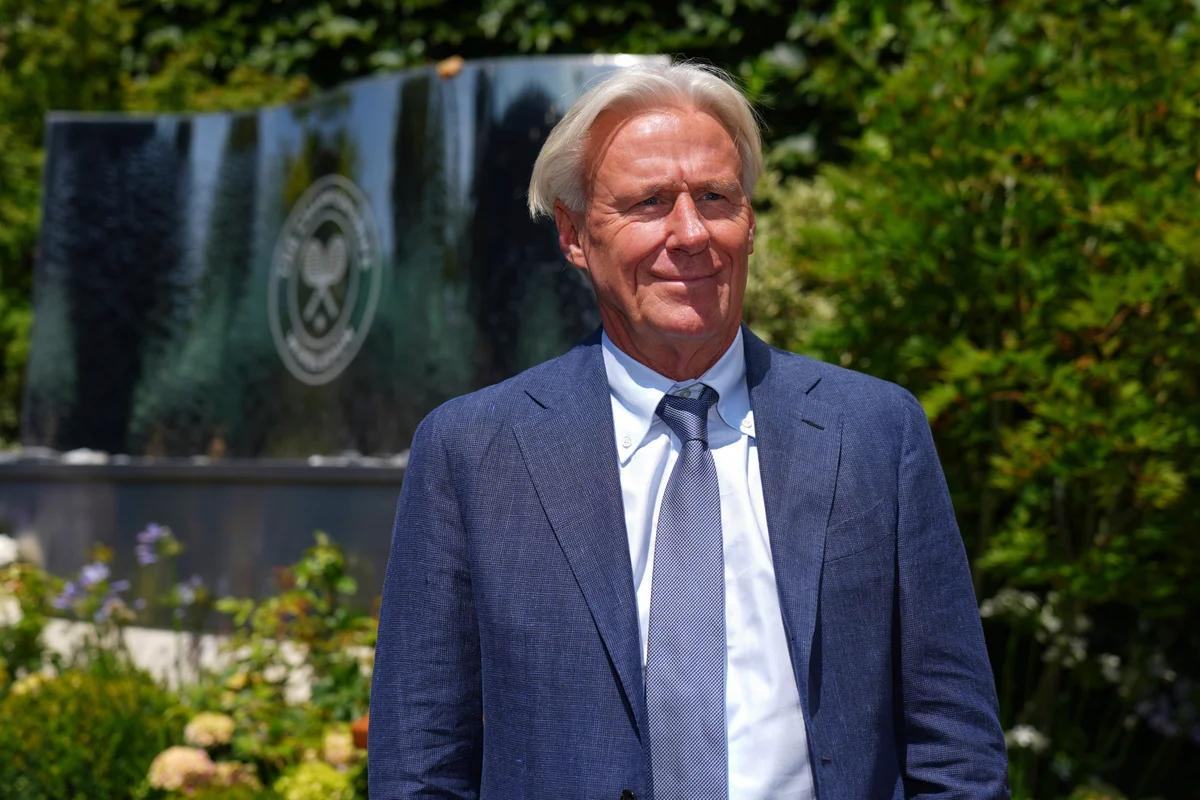Near arrest claim by BBC presenter rebuffed by top official who explained what happened on Soi Cowboy
By James Morris And Son Nguyen
Copyright thaiexaminer

Top Thai official refutes BBC’s near-arrest claims, revealing crew breached filming rules on Sukhumvit’s Soi Cowboy. Police intervened, no arrests were made or footage seized. Later, UK viewers and expats condemned the series as biased, sensationalised and misleading.
A top Thai official on Thursday clarified claims that a BBC crew was nearly arrested in Bangkok earlier this month. Presenter Zara McDermott’s sensational story in London suggested chaos, but the Permanent Secretary at the Ministry of Tourism and Sports revealed the truth: the UK crew broke the agreed filming rules on Sukhumvit’s Soi Cowboy. Police volunteers warned them, but the crew ignored the limits. When local businesses reported the breach to Thong Lor Police Station, officers intervened, and the BBC staff finally withdrew.
A senior Thai government official has directly refuted claims made by BBC presenter Zara McDermott about an alleged near-arrest during the filming of a controversial three-part documentary series. Natthriya Thaweevong, Permanent Secretary at the Ministry of Tourism and Sports, confirmed on Thursday that no arrests occurred and no footage was confiscated. Her comments follow an internal government investigation launched immediately after the clip surfaced.
The controversy erupted after the release of a three-part series titled Thailand: The Dark Side of Paradise, aired on BBC Three. The programme, hosted by McDermott, claims to uncover the darker elements of Thailand’s nightlife and sex tourism industries. But now, Thai commentators, expats and many UK viewers say the documentary distorted facts and misrepresented the country.
Notably, the Ministry has revealed that the BBC crew had submitted a formal request to film in Bangkok’s Soi Cowboy.
BBC crew breached agreements in Soi Cowboy leading to police intervention but no arrests occurred
Permission was granted for specific locations under controlled terms. However, when filming began, the presenter, cameramen, and crew allegedly entered several venues without additional approval. Local business owners became concerned and reported the breach.
Importantly, police volunteers from Thong Lor Police Station warned the film crew about the violation. However, their warnings were ignored, according to the Ministry. As a result, business owners contacted patrol officers, who later arrived to calm tensions.
In the end, the BBC crew complied without incident. No one was arrested, and no media footage was seized. Nevertheless, the complaint remains on file with local police.
The Ministry later issued a public clarification, stating that the Thai government welcomes and supports foreign media. However, all productions must follow official procedures and respect local laws. According to the Ministry, the misrepresentation of this event in the broadcast could negatively affect Thailand’s international image.
BBC documentary triggers backlash in UK and among expats over alleged bias and sensationalism
Meanwhile, the documentary has generated a storm of backlash across the United Kingdom and among the expat community in Thailand. Viewers and critics have accused the BBC of bias, exaggeration, and mischaracterisation. Many say the series relies heavily on tired stereotypes and sensationalism, ignoring Thailand’s cultural richness and social complexity.
Indeed, Thailand has long been a target of Western narratives that focus on nightlife and sex tourism. However, many feel this lens fails to capture the nation’s full reality. Some British expats called the programme “reckless” and “disrespectful,” arguing that it disregards the experiences of people who live in the country.
Across online platforms, thousands voiced their disapproval. On TikTok, Instagram, and YouTube, users slammed the BBC for what they saw as misleading storytelling.
“This show paints Thailand as dangerous. In fact, it’s far safer than most Western cities,” one commenter wrote. Another said, “I’ve walked in Bangkok at 4 a.m. holding my phone. I wouldn’t dare do that in London.”
Pattaya tourism leaders call for reforms in sex work, cannabis regulation and red light zones.
In Pattaya, one of the cities featured in the series, business leaders have pushed back hard. They argue the programme highlights only the worst aspects of their city. However, they are now using the controversy to call for overdue reforms. For years, industry insiders have lobbied for the legalisation and regulation of sex work. Many now say the time for delay has passed.
Thanet Supornsahasrungsi, President of the Chonburi Tourism Federation, said that while the documentary is problematic, it reflects real issues that must be addressed. “We won’t deny some facts in the documentary,” he admitted, “but we also promote family-friendly tourism.” He added that a formal red-light district with regulated sex work, similar to those in Germany and the Netherlands, could protect workers and reduce community tensions.
Crucially, previous Thai governments, including the Pheu Thai administration, proposed legalising sex work. However, legislation has stalled. Advocates argue that regulation would not only improve safety but also generate tax revenue and bring workers into the legal economy.
Pattaya leaders are also pushing for tighter controls on cannabis. Many cannabis shops have sprung up since decriminalisation, but regulation is inconsistent. Officials want clearer guidelines, medical-only use, and enforcement to prevent misuse.
Tourism authorities stress safety infrastructure and steady UK arrivals despite BBC documentary claims
Additionally, concerns about scams and crimes targeting tourists persist. Tourism authorities agree that while crime exists everywhere, Thailand must improve safeguards to protect its reputation. Pattaya’s business community has also asked for more investment in infrastructure and public spaces, including signage upgrades and enhanced lighting in tourist-heavy zones.
Yet despite the documentary’s grim portrayal, Thailand’s tourism numbers from the UK remain relatively stable. From January to August this year, more than 708,000 UK tourists visited Thailand. Officials from the Tourism Authority of Thailand (TAT) say the programme is unlikely to affect those numbers. Most British visitors, they argue, are repeat travellers who understand the country’s full context.
Chiravadee Khunsub, Deputy Governor of TAT for Europe and the Americas, noted that crimes against tourists are not unique to Thailand. “These are global issues,” she said. “We must work together to prevent them, but they don’t define us.” She pointed out that TAT’s London office recently ran campaigns featuring Thai-British Formula 1 driver Alex Albon. The goal, she said, is to showcase a more accurate and positive image of the country.
Critics accuse the BBC of staging scenes and exaggerating arrests, fueling international backlash
Not everyone is convinced by the BBC’s intentions. One British YouTuber, known as “Mac,” accused the production team of staging scenes and pressuring him to make scripted comments. He claimed that filming locations were changed to mislead viewers. His public criticism added fuel to the backlash.
Furthermore, critics took issue with McDermott’s claim of being nearly arrested. They say the claim was inflated to attract attention. “If you want drama, go to a film set. Don’t invent it on the street,” one viewer posted on X (formerly Twitter).
This incident has also revived long-running debates over the West’s portrayal of Southeast Asia. Many believe the region is viewed through a lens of condescension and outdated assumptions. Thailand, in particular, is often presented as a place of moral permissiveness rather than as a complex society with diverse values.
For decades, Thai officials have struggled to balance their country’s image with the realities of global media coverage. Although Thailand is one of the safest countries in Asia for foreign tourists, its media image often suggests otherwise. Critics argue that this disconnect reflects deep-rooted Western biases, not objective journalism.
Thai government emphasises accurate media reporting while welcoming foreign journalists and film crews
As the world continues to debate the documentary’s fallout, the Thai government remains firm. Officials emphasise that Thailand is open to foreign media, but not to misrepresentation. They welcome honest reporting, provided it respects the facts, the law, and the dignity of local communities.
This is not the first time Thailand has faced criticism from international broadcasters. However, many say the BBC’s series went too far by sensationalising normal activities and portraying the country in a harsh light. As a result, some have called for greater scrutiny of how foreign media operate in Thailand.
BBC gets a Red Light from viewers & fans of Thailand over the distorted docu-series aired last week
Sex tourism from the United Kingdom to Thailand spotlighted in BBC documentary series just aired
What happens next is unclear. For now, Thai authorities have left the complaint on record but taken no further action. The BBC has stood by the documentary, while McDermott has not issued further statements.
Still, the fallout from the series continues to reverberate. Tourism leaders, officials, and locals are now trying to figure out what it means to represent Thailand fairly — and what’s at stake when the narrative gets it wrong.
Join the Thai News forum, follow Thai Examiner on Facebook here
Receive all our stories as they come out on Telegram here
Follow Thai Examiner here
Further reading



